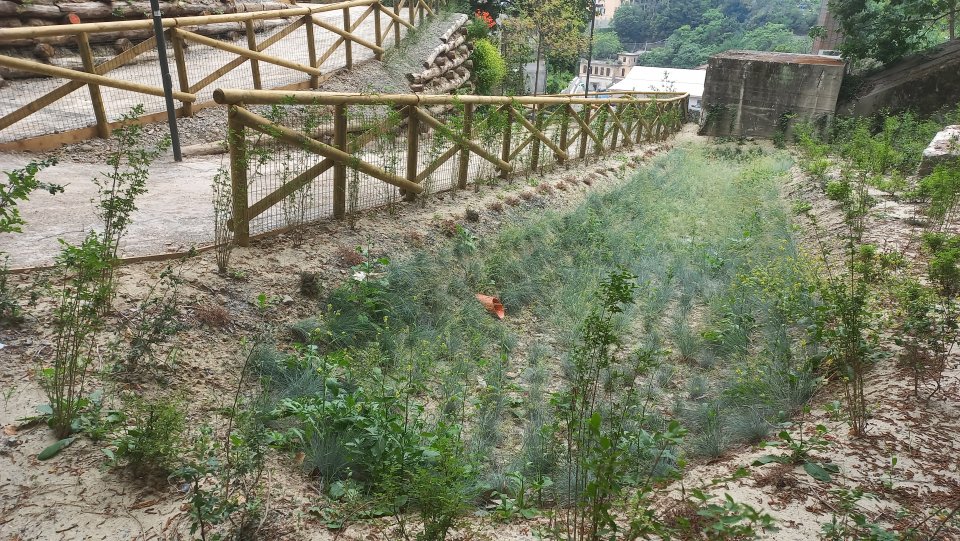
The Municipality of Genova has transformed the Gavoglio area in the Lagaccio district into a 10000 m2 urban park. The former military barracks in the area have been demolished and the area has developed into a public, inclusive and sustainable urban park built by almost entirely nature-based solutions. All functions of the park have been designed to be compatible with nature and the project involved the implementation of 12 different nature-based solutions.
The city of Genoa experiences acute densification and lack of public green spaces, making urban heat stress a pronounced challenge. Air pollution and biodiversity loss are among the other challenges Genova targeted to address through NbS implementation.
The bioswale represents an additional way to protect the Gavoglio park from flooding by decreasing stormwater runoff. It is a gently sloping vegetative swale designed to slow down and reduce stormwater runoff while filtering out pollutants. As it is located near a path, it can prevent it from becoming unusable during heavy rain events. The bioswale also contributes to enhanced biodiversity and improved soil management and quality. The bioswale has a variable width and a shallow depth, and hygrophilous vegetation in order to resist temporary flooding. The bottom of the bioswale is covered with a 5 cm thick layer of marble pebbles, which facilitates the temporary flow of rainwater. A geotextile is laid between the pebble layer and the underlying soil.
The concentration levels of NO2 and O3 at the reference site in Via Napoli was significantly (1.5 to 3 times) greater than the one recorded in Gavoglio during the current data acquisition period, with a peak in autumn-winter time. Bioswale demonstrated the lowest contribution to species diversity among all NbS implemented in the Gavoglio area. Survey among the stakeholders indicated that the largest number of respondents (55%) quantified the increase in values for residential properties between 6% and 10%. Approximately 4925 m3 of demolition materials were reused on site.
- Flood peak reduction
- Increasing infiltration
- Reduce flood risk
- Reduce run-off
- Increase Biodiversity
- Changing image of the urban environment
- Creation of green jobs relating to construction & maintenance of NBS
- Increase amount of green open spaces for residents
- Increase population & infrastructures protected by NBS
Bioswales are particularly suitable for solving the drainage problems of sloping land typical of the Liguria region. They are easy to install and relatively inexpensive, using natural materials easily available on site. They also enhance the natural landscape and provide aesthetic benefits and enhance biodiversity. Advantages: discrete purification yields mainly due to mechanisms of filtration and absorption, groundwater recharge, requires low maintenance.
Nature-based solutions offer an integrative direction for multidisciplinary cooperation, but the cooperation must be facilitated carefully. Citizens are willing to actively participate in co-creation and co-monitoring if tools and means of participant retention are carefully considered and applied.
- Bioswale
